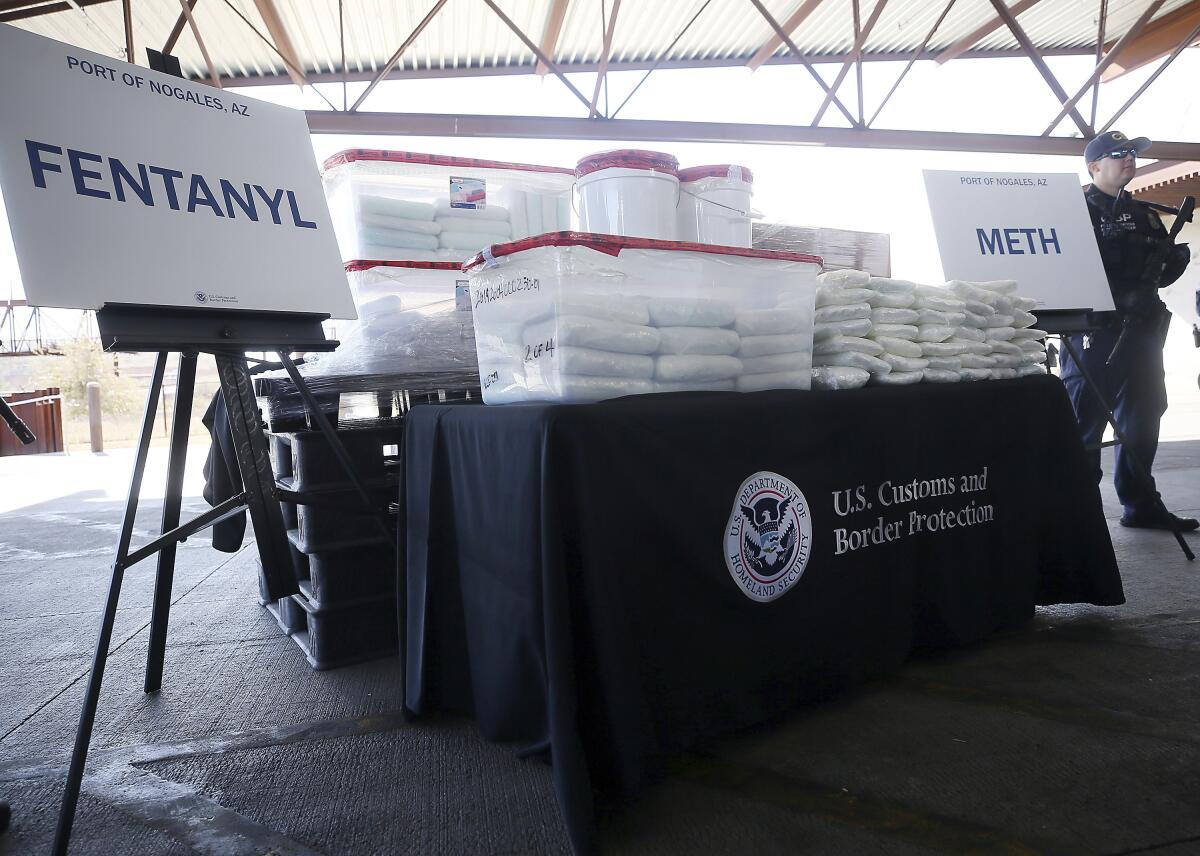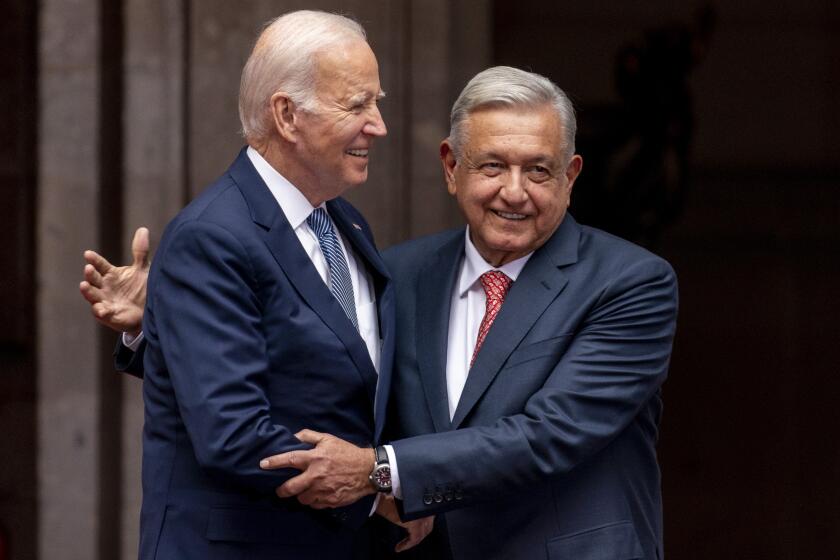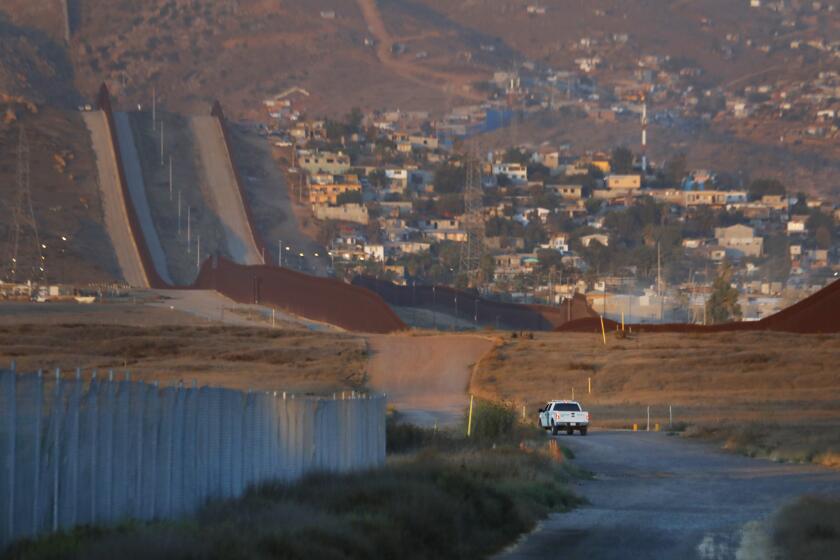Editorial: U.S.-Mexico officials must put aside animosity to stop fentanyl deaths

- Share via
A round of indictments against a major Mexican fentanyl trafficking ring last week presents an opportunity to hobble the multinational drug enterprise killing people on both sides of the border — but only if leaders in the United States and Mexico can stop sniping at each other and overcome a rift between them.
U.S. Atty. Gen. Merrick Garland, announcing the indictments against Sinaloa cartel leaders and other alleged drug traffickers Friday, called it “the largest, most violent and prolific fentanyl traffic operation in the world.” But it didn’t take long for Mexican President Andrés Manuel López Obrador to question the investigation that led to the charges against Los Chapitos, four sons of the infamous drug lord Joaquín Guzmán, known as El Chapo and believed to have handed leadership of the Sinaloa cartel to his sons. López Obrador, widely known as AMLO, on Monday accused the U.S. government of spying and violating Mexico’s national sovereignty.
Such discord is, unfortunately, not unexpected considering that leaders in both countries have been engaging in a war of words for weeks since four U.S. citizens were attacked by a drug gang while visiting the Mexican border city of Matamoros in early March. Two died in gunfire and two others were kidnapped, and released a few days later. The kidnappings prompted Republicans to call for designating drug cartels as foreign terrorist organizations and for the U.S. to invade Mexico to battle these cartels. Though the frustration is understandable, such vigilante-style fantasies are antithetical to a good relationship between two countries.
The three North American presidents met in Mexico City this week, pledging increased cooperation on heightened migration in the region, energy policies and trade disputes.
It’s particularly disappointing because just a few months ago, the presidents of the U.S., Mexico and Canada pledged cooperation against fentanyl trafficking during a meeting in Mexico City. Fentanyl is a synthetic opioid that is 50 times stronger than heroin and 100 times stronger than morphine. In the U.S., fentanyl overdoses are now the leading cause of death among those between 18 and 49 years old.
Relations between the U.S. and Mexico on the topic of drug trafficking have always been rocky, with drugs coming from Mexico to feed the heavy demand in the U.S. But AMLO took it a step too far. Responding to Republican threats, he suggested absurdly that U.S. parents were to blame for the fentanyl crisis for failing to hug their kids enough. He further inflamed ire in the U.S. when he categorically denied that fentanyl is produced in Mexico, contrary to evidence gathered by U.S. law enforcement.
The U.S.-Mexico border is a complex region not easily reduced to sound bites that sometimes turn out to be just myths — or convenient lies.
It also runs counter to information contained in the indictments handed down last week in Washington, D.C., Illinois and New York. The investigation by the Drug Enforcement Administration and other U.S. law enforcement officials tracked a huge drug trafficking enterprise that runs from China to Mexico and the U.S.. DEA agents infiltrated the Sinaloa cartel and the Chapitos network to document how the cartel obtains chemicals from China, manufactures the fentanyl in clandestine labs in Mexico and finally distributes the drugs in the U.S., according to the indictments. The documents provide an eye-opening look into the workings of a major criminal enterprise with multinational reach using a vast network of couriers, tunnels and stash houses.
These indictments are a major blow against one of the biggest drug cartels. Seven of the 28 defendants named in the indictments are in custody pending extradition hearings, but the others are at large. Finding them and arresting them will require the cooperation of Mexico and, likely, other countries. Both countries continue to pledge cooperation, including on the day the indictments were announced, but trading barbs is not helping those efforts.
With the drug wars having claimed thousands of lives on both sides of the border, it’s imperative that American and Mexican leaders stop antagonizing each other and focus on their common goal of reducing the violence and death associated with the illegal fentanyl trade.
More to Read
A cure for the common opinion
Get thought-provoking perspectives with our weekly newsletter.
You may occasionally receive promotional content from the Los Angeles Times.












